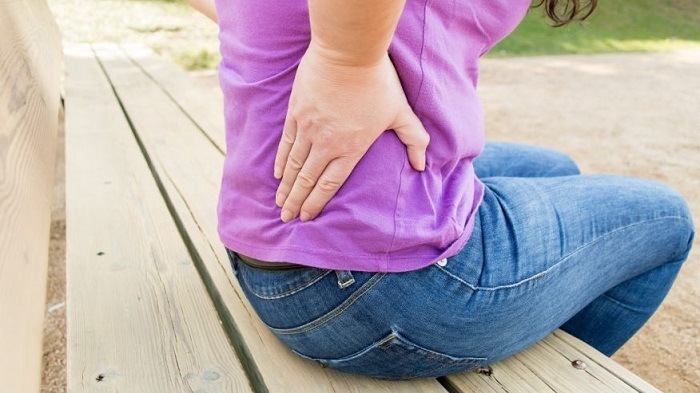You`re less likely to develop certain chronic diseases.
Got a backside with lots of padding? It might be good news for your health. One study in the International Journal of Obesity found that a higher percentage of fat in your behind is correlated with a decrease in cardiovascular and metabolic risk. It`s also associated with healthy cholesterol and blood sugar levels (also add these top 10 cholesterol-fighting foods to your diet). Translation: A round booty may mean you have a lower risk of developing heart disease, high cholesterol, or diabetes.
You`re logging too much time at the gym.
If your butt is nonexistent, consider easing up on CrossFit and those long-distance runs. "The glutes are the largest muscles in the body, and muscle is the most metabolically active tissue," says Brandon Mentore, a strength and conditioning coach in Philadelphia. "When energy demands become high enough, muscle tissue will be broken down to meet those demands, and deflated butt often ensues." In other words, pancake butt could mean that you`ve moved from burning fat to melting away muscle, which is not a good thing.
You`re fiber deficient.
Hemorrhoids—those swollen veins on your underside—can cause blood spotting when you go to the bathroom and general discomfort when you sit for long periods. Although they can occur after childbirth, they`re also common in constipated people who must strain to have a bowel movement. Try adding more fruits and vegetables to your diet, replacing white foods with whole-grain equivalents, and upping your H2O intake.
You`re sitting too much.
You probably didn`t need a study to tell you this, but research has shown that too much chair time can lead to a wider, flatter butt. That`s because being chained to your desk can cause tight hip flexors and weak glutes. Take frequent breaks to walk or stretch, and include strengthening exercises for your core and butt (like these single-leg squats, bridges, and planks) in your exercise routine.
Practicing good posture may also help. Your knees should be even with or slightly below your hips, your computer monitor should be at or slightly below eye level, and hands should be at or below elbow level.
You need to see a doctor.
Shape aside, what comes out your behind matters a lot, since bowel movements are a good indicator of internal health and any changes may be a red flag. Blood in the stool should always be checked out, unless it`s due to hemorrhoids. Unusual consistency, smell, or color may point to a treatable infection or a condition like Celiac disease or a food intolerance. Frequent or persistent bouts of diarrhea could mean an intestinal bowel disease like ulcerative colitis or Crohn`s disease. (Read more about what your poop says about you.) "Once identified, doctors can treat these conditions through dietary changes" and in some cases medication, says Cynthia Rudert, MD, a gastroenterologist in Atlanta.
More about:
















































